MercoPress. South Atlantic News Agency
Tag: IMF
-
Wednesday, January 29th 2020 - 08:20 UTC
IMF announces a technical mission will travel to Buenos Aires in February

An IMF technical mission is expected to travel to Buenos Aires in February to continue to exchange views on macroeconomic plans and debt sustainability, announced from Washington the IMF Chief Spokesperson Gerry Rice following the meeting on Tuesday of Argentine Economy minister Martin Guzman IMF members of staff in New York. made the following statement on Argentina today:
-
Tuesday, January 28th 2020 - 08:16 UTC
Argentina's economy minister scheduled to meet IMF officials
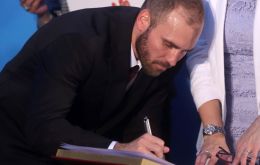
Argentine Economy Minister Martin Guzman will meet with International Monetary Fund officials in New York on Tuesday, an IMF spokesman said on Monday, as the government continues talks with its biggest creditor ahead of a massive debt restructuring.
-
Monday, January 27th 2020 - 08:19 UTC
Argentine economy minister in New York for talks with IMF and US Treasury officials
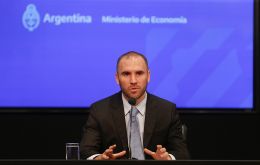
Argentina's Economy Minister Martin Guzman iis in New York and on Monday will be participating of a conference at the Council of Americas. Later in the day he will meet h International Monetary Fund and U.S. Treasury officials, as part of Argentina's efforts to revive growth and renegotiate its debts.
-
Saturday, January 18th 2020 - 08:58 UTC
Support words from IMF chief for Argentina's efforts to recover the economy

International Monetary Fund Managing Director Kristalina Georgieva said on Friday the lender has had “very constructive” exchanges with Argentina's new Peronist government and would do whatever possible to assist the indebted country.
-
Saturday, January 18th 2020 - 08:46 UTC
IMF warns that the US/China accord is a “trade truce, and not the same as trade peace”
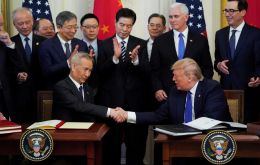
The United States and China still have a long way to go to resolve their trade disputes although the partial deal signed this week is a step forward, IMF chief Kristalina Georgieva said on Friday. “Trade truce is not the same as trade peace,” she said.
-
Wednesday, January 15th 2020 - 09:50 UTC
Buenos Aires province negotiating an extension on a US$ 250m bond payment on January 26
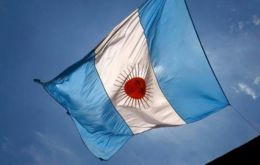
Buenos Aires province bonds added to recent losses on Tuesday after the provincial government asked holders for an extension on a more than US$ 250 million payment due later this month, dragging Argentina’s debt lower as well.
-
Monday, January 13th 2020 - 09:28 UTC
Argentine finance minister confident the sovereign debt situation will be resolved
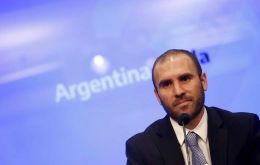
Argentina’s new government is working “nonstop” to resolve its sovereign debt crisis, the country’s Economy Minister Martin Guzman said, a month after center-left Peronist President Alberto Fernandez took office.
-
Friday, January 3rd 2020 - 09:54 UTC
Argentina issues Treasury Bills, subscribed by the Central bank, to pay creditors

Argentina's new government announced the issuance of US$ 1.326 billion of dollar-denominated Treasury Bills, to be directly subscribed by the central bank, according to a decree in the Official Gazette on Thursday.
-
Tuesday, December 31st 2019 - 13:10 UTC
Argentina will honor payments this week of bonds totaling some US$ 850 million

The Argentine government announced that this week it will honor payments of some US$ 850 million, which correspond to two different sovereign bonds, one of them a century maturing bond issued in 2017 during the administration of ex-president Mauricio Macri.
-
Friday, December 20th 2019 - 09:50 UTC
World Bank warns on wave of growing debt in emerging and developing nations
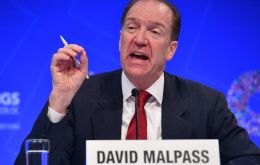
A wave of debt in emerging and developing nations has grown faster and larger than in any period of the last five decades and could end with another crisis, the World Bank warned on Thursday.
